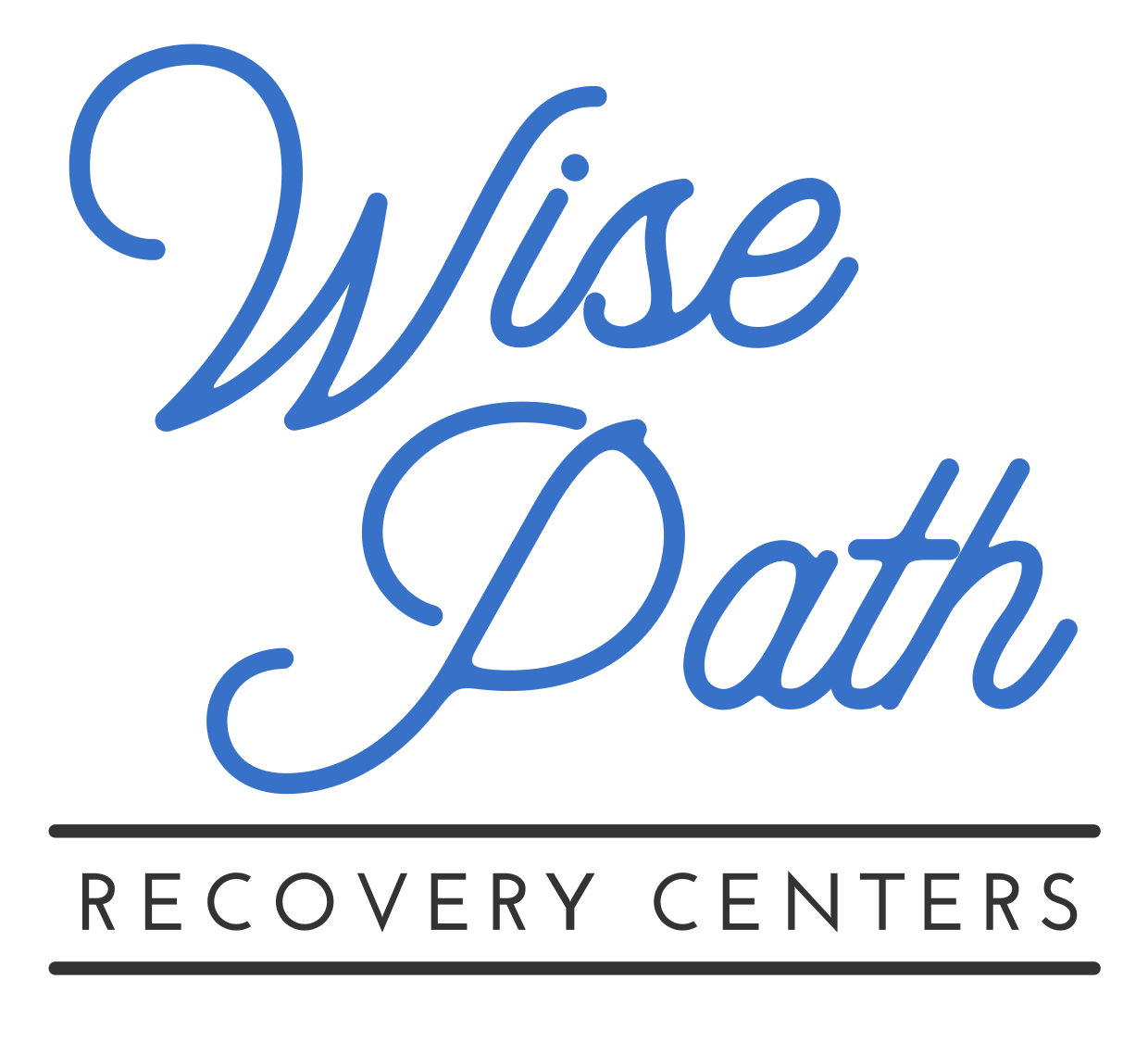Wise Path Recovery Centers ™
PERSONALITY DISORDER TREATMENT IN WEST VIRGINIA
What Are Personality Disorders?
Around 9 percent of adults in the United States are affected by at least one personality disorder type in a given year, according to the National Institute of Mental Health (NIMH).
Personality disorders are a type of mental health condition where people have consistent and long-lasting ways of thinking, feeling, and behaving that are different from what society may consider normal. These patterns usually start when a person is a teenager or young adult and stick with them for their whole life. They can cause a lot of emotional pain and make it hard for someone to do well in their relationships, work, and in understanding who they are as a person.
There are several personality disorder types, including:
Borderline Personality Disorder
Narcissistic Personality Disorder
Antisocial Personality Disorder
Avoidant Personality Disorder
Obsessive-Compulsive Personality Disorder, among others.
Personality disorders come in different types, and each type has its own symptoms and criteria for diagnosis. But they all have one thing in common: they cause people to have very fixed and inflexible ways of thinking, feeling, and behaving.
It’s important to note that personality disorders are distinct from other mental health conditions, such as mood disorders or anxiety disorders, although they can often coexist or overlap with these conditions. Gaining a deep understanding of personality disorders is vital to ensure precise diagnosis, effective treatment, and compassionate support that propels you toward a successful journey of recovery.

Signs of a Personality Disorder
Personality disorders can cause persistent patterns of unhealthy thoughts, behaviors, and relationships. Common signs include intense mood swings, difficulty maintaining relationships, impulsive or risky behaviors, and trouble regulating emotions. Individuals may struggle with self-identity, have a fear of abandonment, or experience frequent conflicts with others. These symptoms can interfere with daily life, work, and overall well-being if left untreated.
Benefits of Treatment for Personality Disorder
Treatment can help individuals develop healthier coping mechanisms, improve emotional regulation, and build stronger relationships. Therapy provides essential tools for managing symptoms, increasing self-awareness, and reducing distressing behaviors. With personality disorder treatment in West Virginia, individuals can gain stability, improve their quality of life, and foster personal growth. Effective treatment leads to greater emotional balance, better decision-making, and an overall sense of well-being.

What Is the Connection Between Personality Disorders & SUD?
Substance use disorders and personality disorders often co-occur, requiring simultaneous treatment for effective recovery. At Wise Path Recovery Centers™, we understand the complex relationship between these conditions. Here’s what you need to know:
Self-Medication and Coping: People with personality disorders may use drugs or alcohol to cope with emotional pain and regulate their emotions. At our Recovery Centers, we focus on healthier coping strategies and long-term recovery.
Impulsivity and Risk-Taking Behavior: Personality disorders are associated with impulsivity and risk-taking, increasing the likelihood of substance abuse. Our specialized interventions help develop impulse control and better decision-making.
Common Underlying Factors: Biological, genetic, and environmental factors contribute to both personality disorders and substance use disorders. Addressing these factors is integral to our comprehensive treatment approach.
Co-occurring Symptoms and Recovery: Substance use worsens personality disorder symptoms, complicating management. Likewise, untreated personality disorders hinder substance use recovery. Our tailored treatment plans address both conditions for lasting recovery.
Our clinical team at Wise Path Recovery Centers™ is dedicated to addressing the unique needs of individuals with co-occurring substance use and personality disorders. Our experienced team provides integrated and individualized treatment, helping you heal, regain control, and achieve long-term recovery.

How Do We Treat Bipolar Disorder?
At Wise Path Recovery Centers™, we recognize the unique challenges faced by individuals with co-occurring personality and substance use disorders. Our comprehensive treatment approach is designed to address both conditions simultaneously, aiming for long-lasting recovery and improved quality of life.
Our treatment approach is based on the following:
Dual Diagnosis Treatment: Our experienced team of mental health professionals and addiction specialists provides integrated dual diagnosis treatment, addressing both the underlying personality disorder and substance use disorder. This approach ensures that all aspects of an individual’s condition are thoroughly assessed and treated.
Individualized Care: We understand that each person’s journey is unique, so we develop personalized treatment plans tailored to individual needs, goals, and preferences. Our programs combine evidence-based therapies, such as cognitive-behavioral therapy (CBT), dialectical behavior therapy (DBT), and motivational interviewing, among others.
Holistic Approach: We take a holistic approach to treatment, recognizing the importance of addressing not only the symptoms but also the underlying factors contributing to the co-occurring disorders. Our programs may include family and group therapy, family involvement, mindfulness practices, as well as relapse prevention education to promote healing and growth.
Aftercare and Support: Recovery is an ongoing process, and we provide comprehensive aftercare support to ensure a smooth transition back to everyday life.
If you’re ready to take the first step towards healing, Wise Path Recovery Centers™ is here for you. Contact us today to learn more about our specialized treatment programs and how we can support you in your journey toward recovery from both personality disorders and substance use.
View Our Locations
We currently offer inpatient treatment programs in Morgantown, WV, as well as outpatient programs in Charleston and Morgantown, WV. We also have sober living homes in Columbus, IN. Give us a call at 866-860-9772 to get pre-screened and assessed for the treatment program that will best meet your needs.
We Accept Most Major Insurance Carriers
Once you’ve submitted the verification form, feel free to contact us if you have any questions about insurance or payment options for personality disorder treatment in West Virginia. Our team is here to assist you and ensure you have the information you need for a smooth admissions process.









FAQs About Personality Disorders
How do I know if I have a personality disorder?
A personality disorder is diagnosed by a mental health professional based on persistent patterns of thoughts, feelings, and behaviors that cause distress or impair daily functioning. If you struggle with relationships, emotional regulation, or self-identity, seeking professional evaluation can help.
What are the 5 traits of personality disorder?
The five traits often associated with personality disorders include extreme emotional responses, difficulty in relationships, impulsivity, distorted thinking, and problems with self-identity. These traits vary depending on the type of personality disorder.
Is a personality disorder curable?
Personality disorders are not typically “curable,” but with therapy and support, symptoms can be managed, and individuals can lead fulfilling lives. Personality disorder treatment in West Virginia focuses on long-term improvement rather than a complete cure.
What is the best treatment for personality disorders?
The most effective treatment often includes therapy, such as dialectical behavior therapy (DBT) or cognitive behavioral therapy (CBT), sometimes combined with medication for specific symptoms. Treatment varies based on the type and severity of the disorder.
What is the difference between a mental illness and a personality disorder?
Mental illnesses, like depression or anxiety, are often episodic and can be treated with medication, whereas personality disorders involve long-term patterns of behavior and thought. Personality disorders are more ingrained and affect how a person interacts with the world.
Can you live a normal life with a personality disorder?
Yes, with proper treatment and coping strategies, individuals with personality disorders can lead meaningful and productive lives. Therapy, self-awareness, and support systems play a crucial role in managing symptoms.
Are personality disorders genetic or caused by the environment?
Personality disorders are believed to be caused by a mix of genetic factors and environmental influences, such as childhood trauma or neglect. No single cause determines their development.
Do personality disorders get worse with age?
Some personality disorder symptoms may improve with age, especially with therapy and self-awareness, but others can persist or worsen without treatment. The impact varies based on the individual and the type of disorder.
Can personality disorders be treated without medication?
Yes, therapy is the primary treatment for personality disorders, and many individuals improve without medication. However, medications may be prescribed to manage specific symptoms like anxiety or depression.
How common are personality disorders?
Personality disorders affect approximately 10%–15% of the population, though the exact prevalence varies by type. Many cases go undiagnosed due to stigma or lack of awareness.
